In the early Oughts, brothers Tyler and Jonathan Schramm were figuring out what to do with excess potatoes from British Columbia’s “Spud Valley” that didn’t fit supermarket criteria and it hit them: potato vodka. Tyler promptly left his job on Whistler Mountain and attended Heriot-Watt University in Edinburgh, Scotland, and returned to Pemberton a freshly minted master distiller. He and brothers Jonathan and Jake built the distillery themselves in the winter of 2008 and Pemberton Distillery started making spirits the following year. It remains a family affair at Pemberton Distillery, where Distiller Tyler Schramm and wife Lorien continue to produce vodka and gin.
In 2010, they went through 200,000 pounds of organic potatoes, grown by a single nearby farmer. They arrive in 1200-pound batches and qualify as Grade B, since they’re “out of shape and out of size.” Schramm typically blends 12 bins of potatoes during a processing session and relies primarily on five varietals, with the majority of volume coming from Russets (starchy) and reds (moist), along with Yukon gold, German butter and Russian blue.
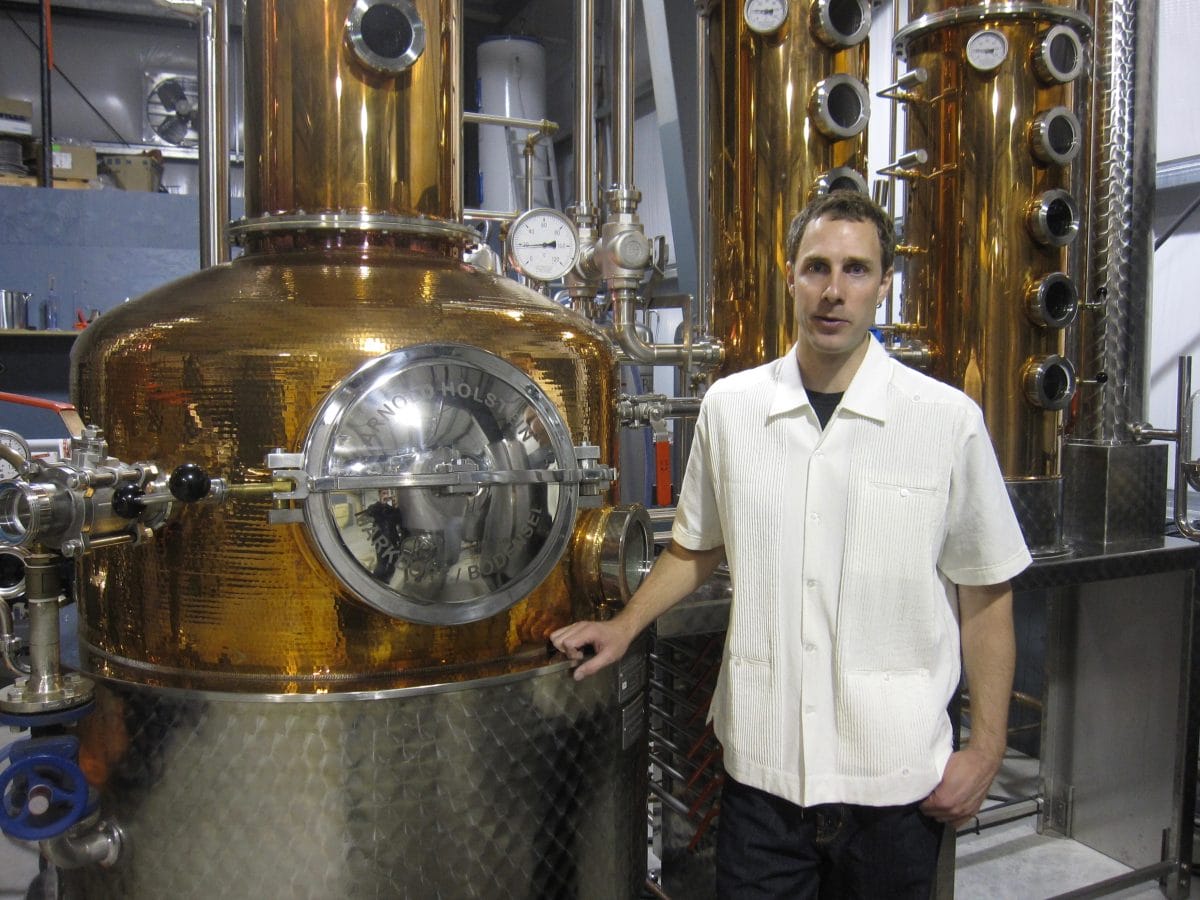
Tyler Schramm gave me a tour of the distillery, which features a gorgeous copper two-still system from Arnold Holstein, produced in Markdorf, Germany.
He runs potatoes through a grinder, an industrial juicer, and then transfers the results to a mash tun for about seven hours to soften the starch. He uses malted barley to add enzymes that converts starch to sugar. The liquid’s pumped into fermenters, where it remains for three days. At this point, the liquid is 7.5% ABV sour due to all the yeast, and the consistency of a milkshake.
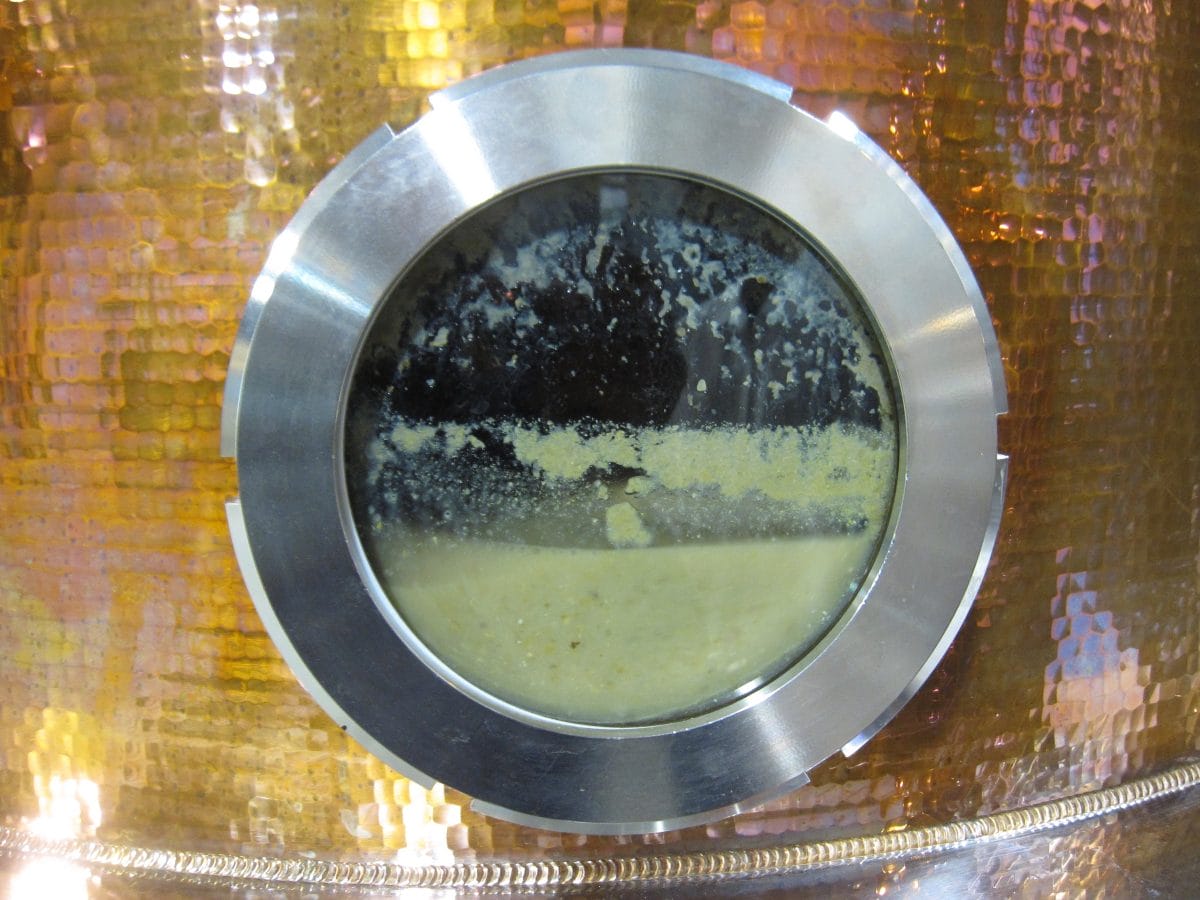
The wash still takes it up to 75% alcohol, 85% on second distillation, then the liquid moves to a modified pot still with rectifying columns, which “allows you to achieve a more refined product in fewer distillations.” It takes 17 hours to collect 100 liters at 95% ABV.
With gin distillation, Schramm dilutes the spirit back to 50% ABV, add herbs and botanicals, and it’s distilled straight to second column. To use both columns, it would strip flavors. Schramm made another interesting point, saying, “What we’re calling impurities in the vodka is important flavor components in the whiskey.”
Beer fans would probably enjoy the fact that Tyler’s older brother Jonathan grows organic hops, initially on a half-acre, and now on 1.5 acres. He plans to grow to 4.5 acres, which will allow him to supply local microbreweries with Cascade, Centennial and Chinook hops. Jonathan Schramm has also experimented with Magnum, Nugget, Saaz and underperforming Mount Hood hops.
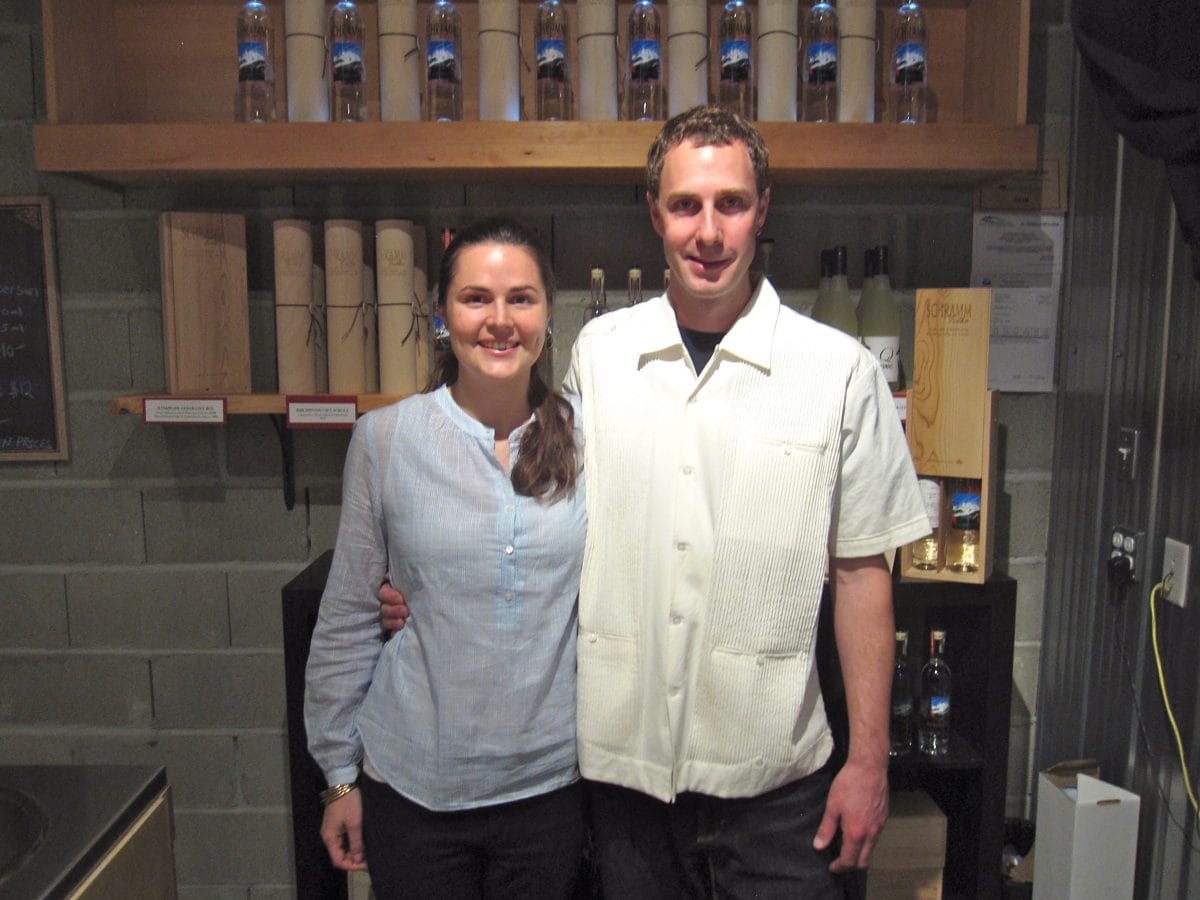
We moved from the distillery into the tasting room, where Tyler and Lorien poured vodka and gin.
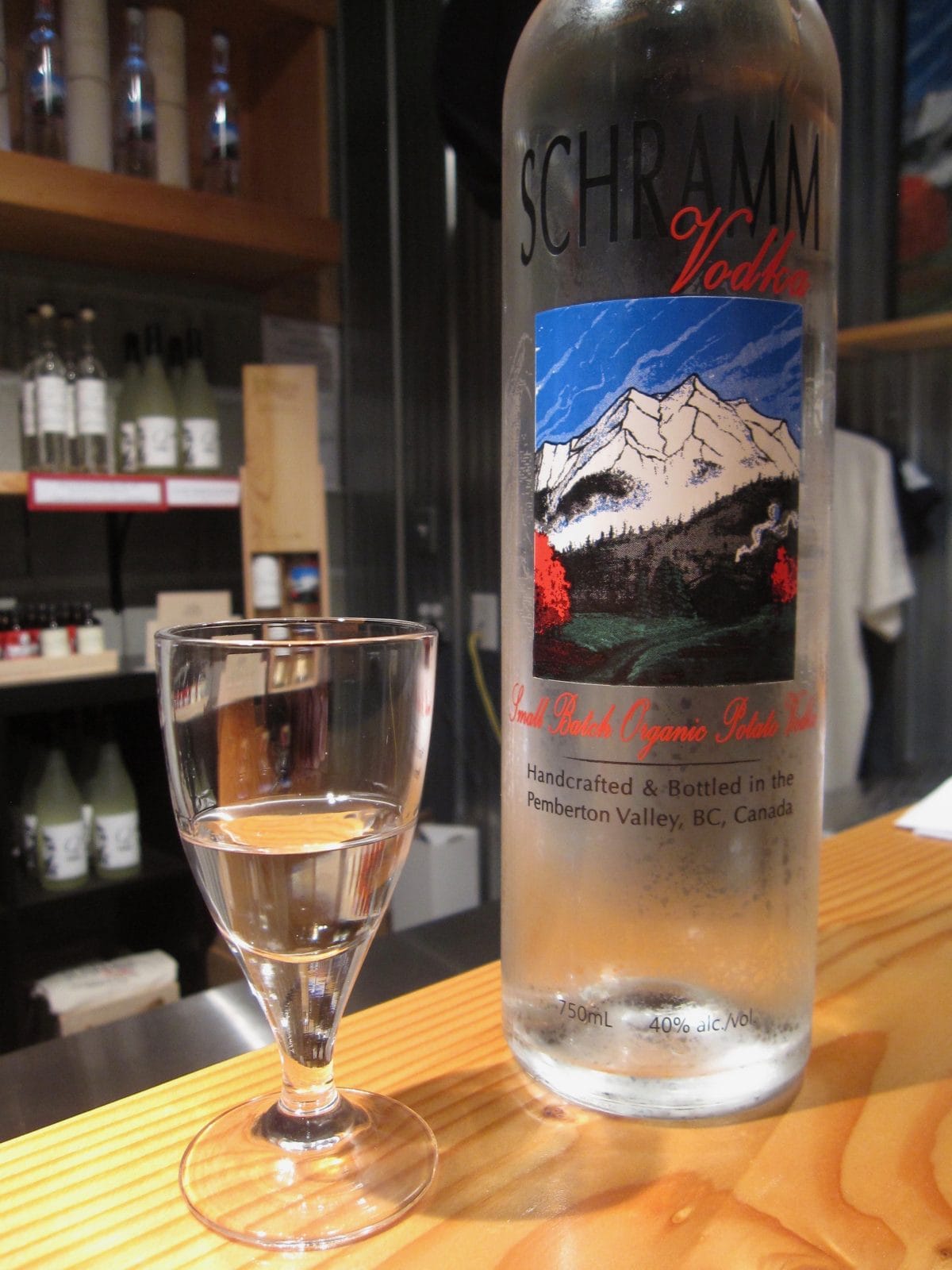
The Schramms served their vodka chilled, but not too cold as to mask the flavor.
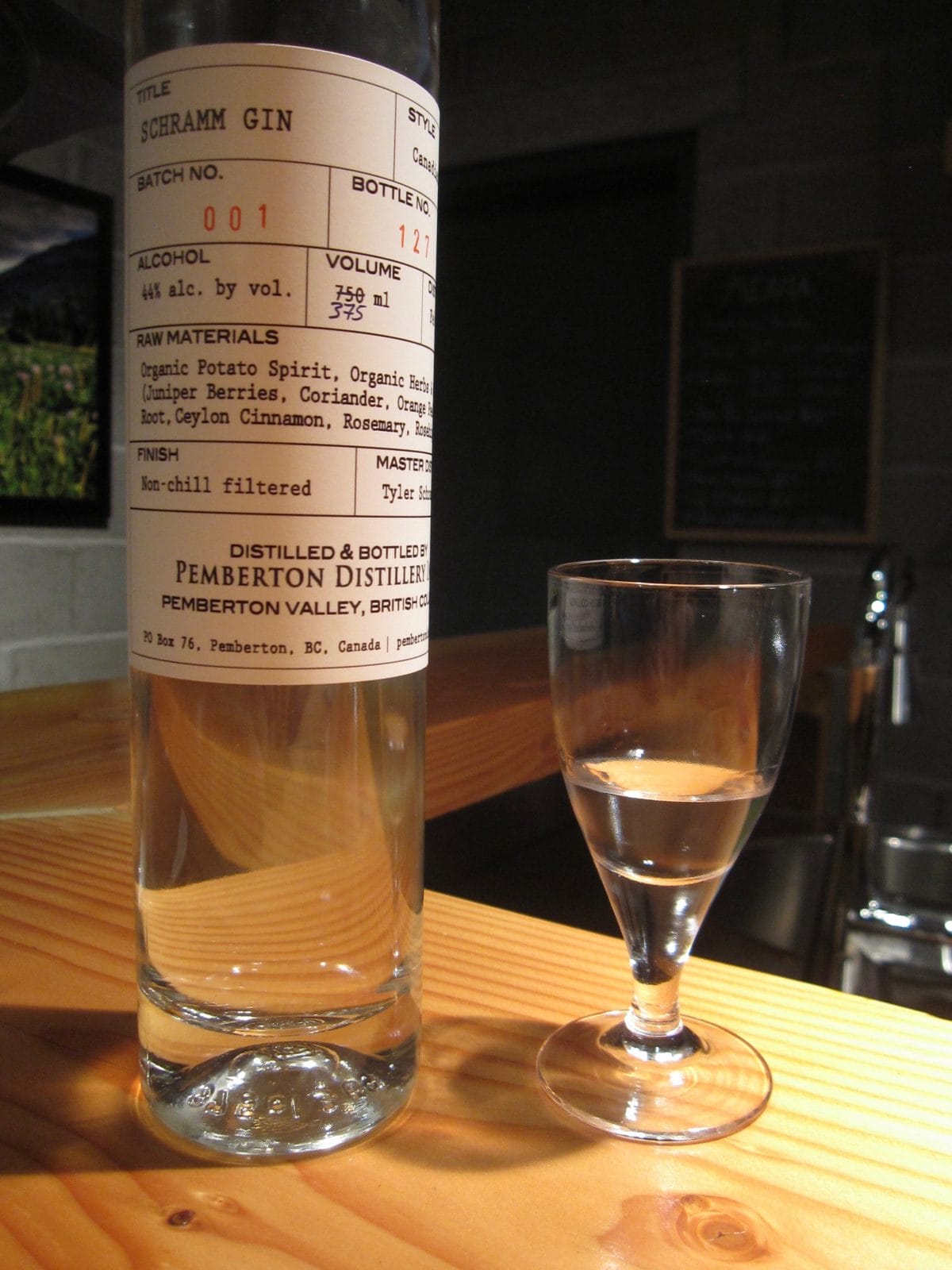
The Schramms dialed down the intensity of their gin after early feedback from local bartenders.
The gin had an inviting aroma and enough botanical flavor to serve as a sipper, and was by no means one-note. It would be interesting to taste the Pemberton gin in a cocktail (or several).
The Schramms are off to a good start with vodka and gin and have every intention of releasing a single malt whisky in 2015, which is currently aging in Four Roses bourbon barrels. Mark your calendars.
Note: My visit to Pemberton Distillery was part of a tour hosted by Tourism Whistler. The Schramms gave me unexpected but complimentary bottles of gin and vodka at Pemberton Distillery.

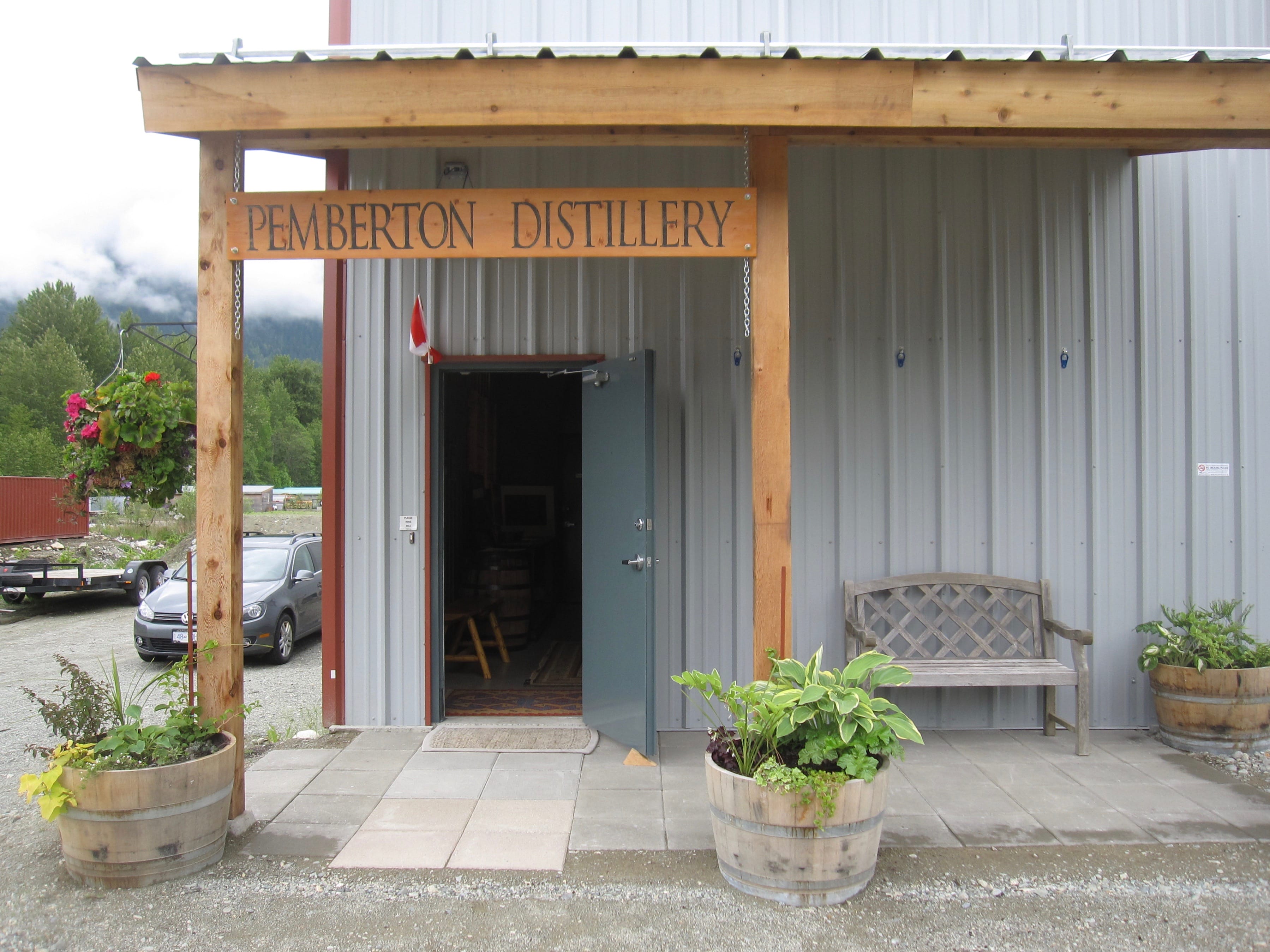
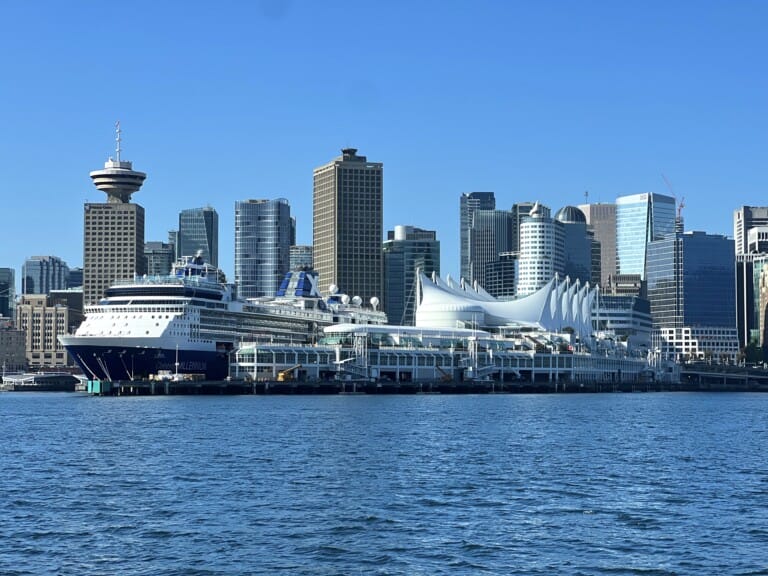
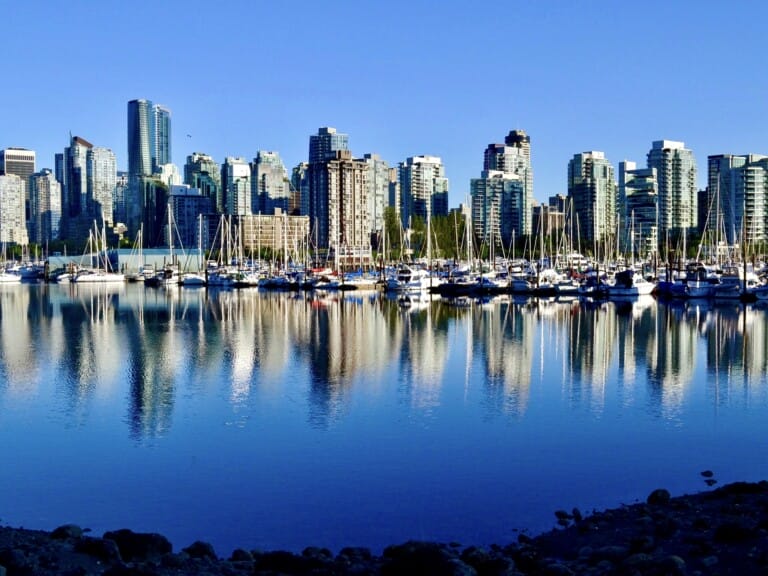





Leave a Comment